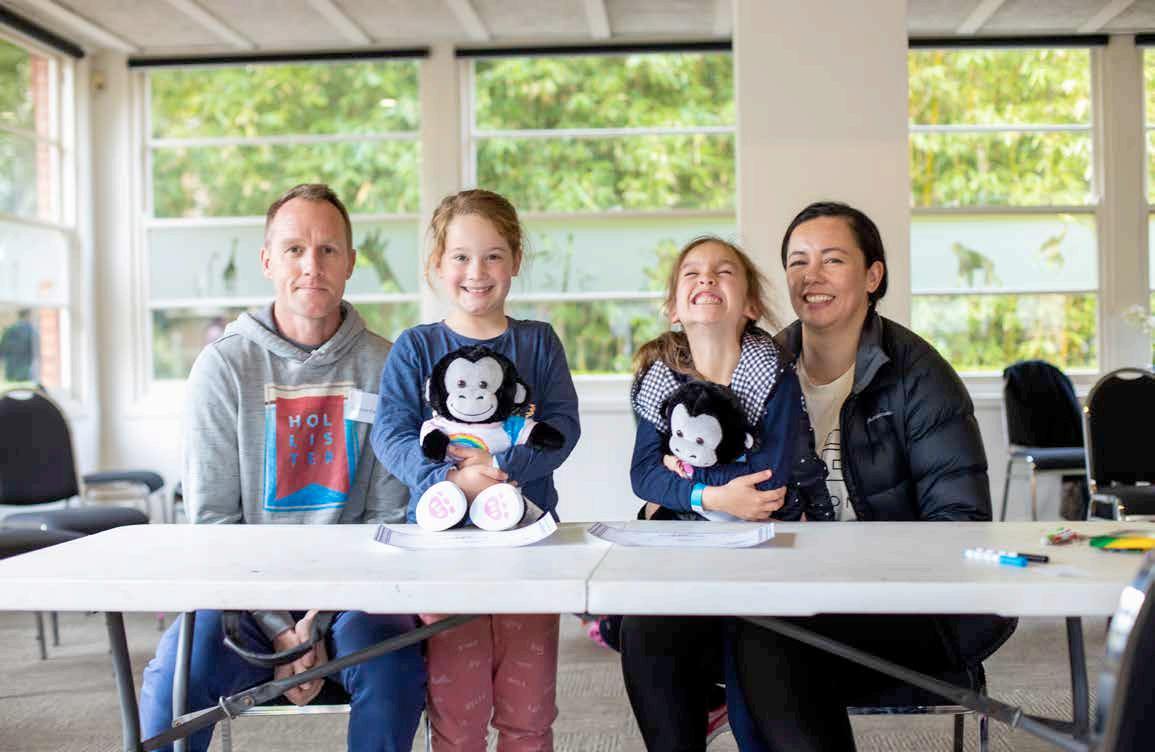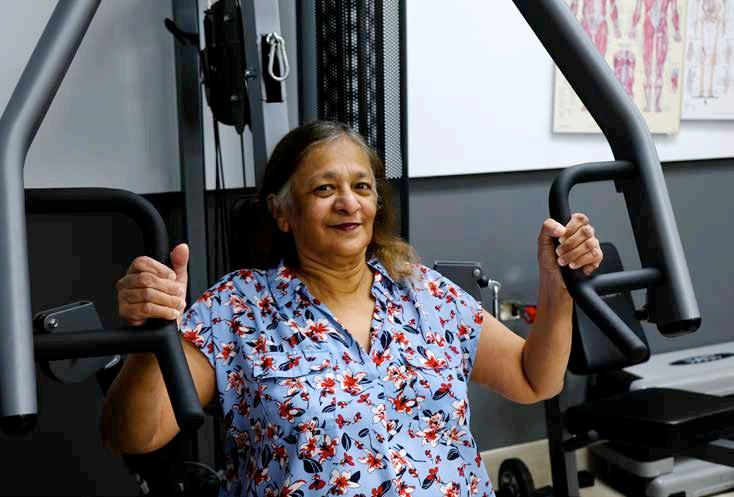
5 minute read
Our Services
With more than 2,600 clients across South Australia and Northern Territory, we are committed to ensuring that people with MS have access to high quality services and expert guidance. Throughout 2020-21 our focus was to make our services more accessible for people who live in regional or rural areas, and people who need to access services from home.
Our 2020-21 service offering included:
Advertisement
MS Nursing
Counselling support
Physiotherapy
Occupational Therapy
NDIS Support Coordination
NDIS Advice and Support
Wellbeing and Social Support
Continence Support
Wellbeing Programs and Workshops
Peer Support
TELEHEALTH
To quickly adapt to the COVID-19 response, developing our telehealth services became one of our top priorities in 2020. Many of our services are now offered via telehealth, and we have spent the past year training our staff to be able to deliver the same high standard of service to people over the telephone or video call. We also delivered four wellbeing education webinars across the year covering a range of topics including diet, exercise, stress management, sleep hygiene, connections and falls prevention.
REGIONAL OUTREACH
Our outreach program took us to regional South Australia and the Northern Territory in 2020-21. A team of specialist MS staff travelled to Darwin in May and Alice Springs in June to deliver wellbeing education sessions and meet with people with MS 1-on-1 to discuss their individual circumstances. We also delivered wellbeing services to people in the Barossa and our NDIS Support Coordination services to the Riverland.
In June, we launched our new Peer Mentoring Program in regional SA. Peer mentors are volunteers who can share their personal experiences with others and provide essential 1-on-1 initial support for people recently diagnosed with MS and at various stages on their MS journey. Our pilot programs were held in Port Pirie and Port Lincoln and will ensure that people with MS living in these areas have a place to turn to for support in their local area.
MS FAMILY FUN DAY
In 2020 we held our very first MS Family Fun Day at the Adelaide Zoo with funds raised in the 2019 MS Readathon. The MS Family Fun Day provides an opportunity for kids who have a parent living with MS to spend quality time with their family, learn more about MS and bond with other kids who are sharing their journey.
The MS Family Fun Day was packed full of activities including a yoga class and mindfulness session with practical tips and activities the whole family could continue to practice at home.
The kids also created their own Build-a-Bear to take home as a keepsake. We had a short session on positive affirmations where the kids picked their own positive words to write on their bear’s t-shirt.
Our first MS Family Fun Day was in huge demand and received a lot of positive feedback from all families.
Thanks to proceeds from the MS Readathon, we will continue to hold these Family Days each year.
Getting strong to beat MS: Susan's story of resilience
Strength is one of the biggest things Susan feels like she has lost since she was diagnosed with MS. The strength to stand up for long periods of time, or to walk long distances. The strength to complete day-to-day tasks like cleaning. And the physical strength to pick up her granddaughter.
But her mental and emotional strength hasn’t faltered. Taking charge of her healthcare is something that Susan takes pride in and since joining the MS Society’s exercise programs, she has set her sights on her goal of building her strength back up and nothing’s going to stop her now!
“I woke up one morning with tingling and pins and needles on my left side. I thought that I had just slept on my arm and that the feeling would return. This did not happen. In fact, the tingling feeling got worse, and I felt weak on my left side. The left side of my tongue and my face started to feel strange with pins and needles,” Susan says. After she was officially diagnosed with relapsing remitting multiple sclerosis, Susan started to experience other symptoms of MS like fatigue. She was working as a nurse and started to notice she was extremely tired all the time and couldn’t keep up with the other nurses.
Muscle weakness also meant that her hand would shake when she had to concentrate on things like giving injections and taking blood sugar levels. She says there was a risk of pricking herself with a needle or injecting herself. Susan tried to keep her symptoms from affecting her work and pretended like she was okay for as long as possible. But the risk of injuring herself became too great and she had to give up her job. A decision that she refers to as her biggest regret since being diagnosed with MS.
When Susan connected with the MS Society, she had a goal. A goal to rebuild the strength that she had lost and to be able to do the things she used to be able to do. Studies show that regular exercise can help to improve symptoms of MS including muscle weakness and fatigue. The MS Society have a wide range of exercise programs available to people living with MS. Susan has joined the MS Society’s weekly hydrotherapy classes and gym classes with a personal trainer. These exercise programs are personalised to Susan’s abilities and goals.
At the beginning of last year Susan experienced the great joy of becoming a grandmother. Not being able to pick her baby granddaughter up without feeling unsteady on her feet is another motivation for Susan to get as strong as possible.
“I find that with the MS Society I’ve got people who understand what it’s like to have MS and I don’t have to pretend that I’m okay like I used to do at work. Here everyone is kind and understanding,” Susan says.

“I used to have a chair in the kitchen, I used to always have to sit down [when cooking]. The chair is still in the kitchen, but I can stand for a lot longer. My legs have become stronger, and I can carry drinks with my left hand now.”

